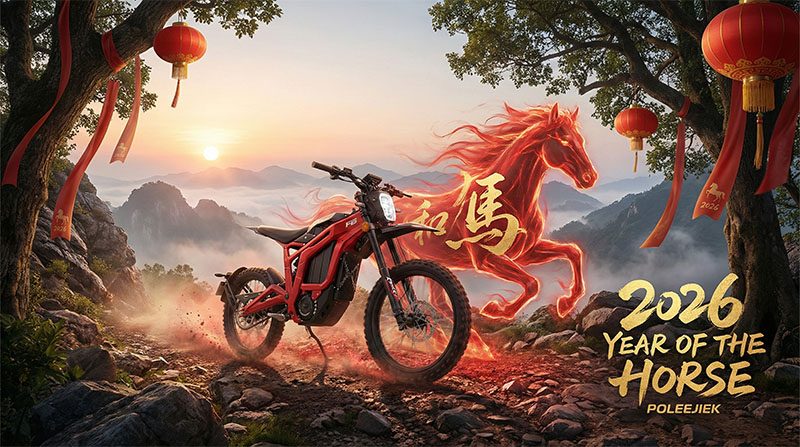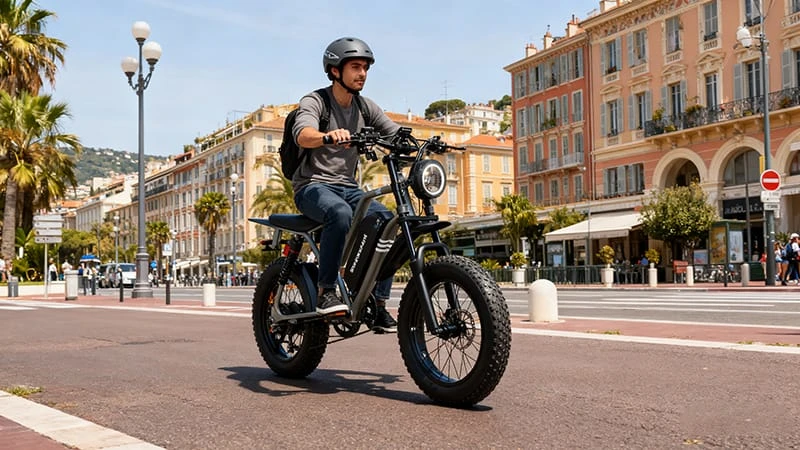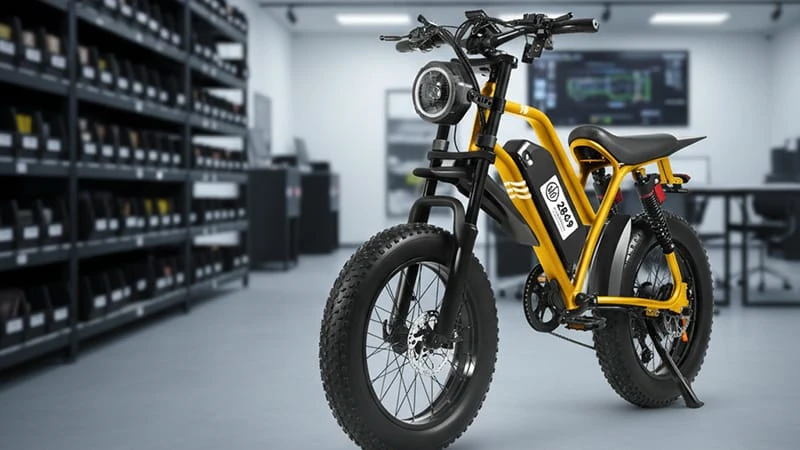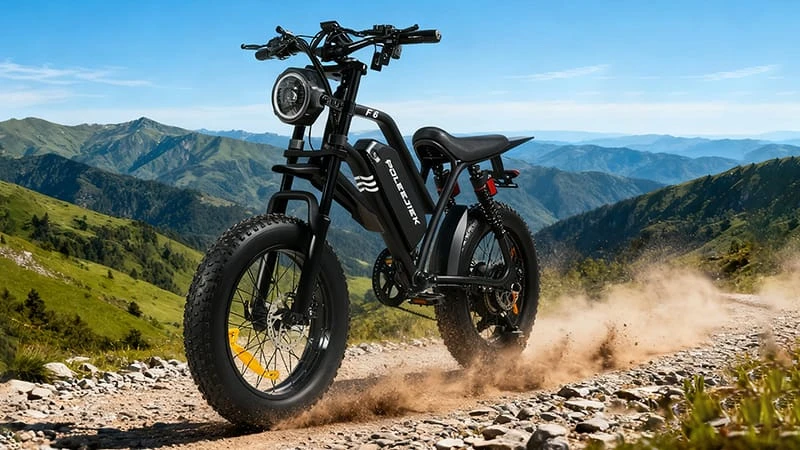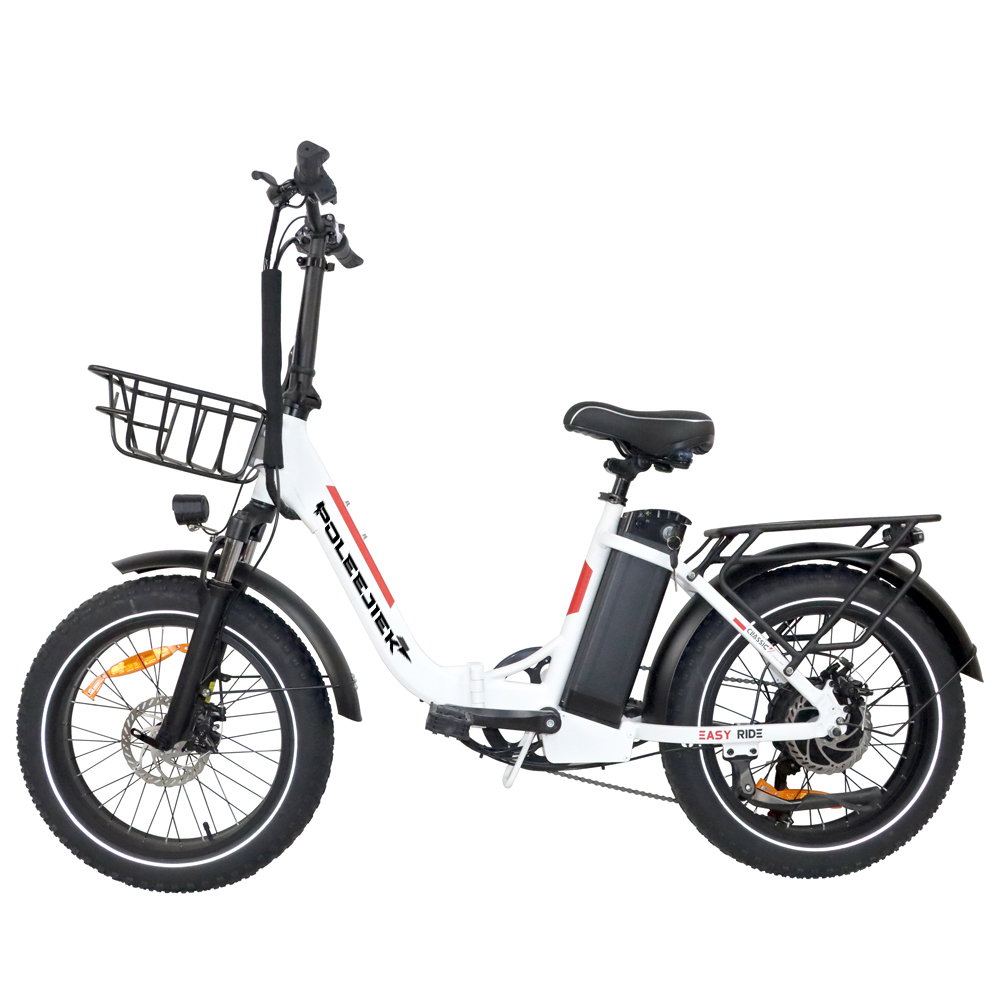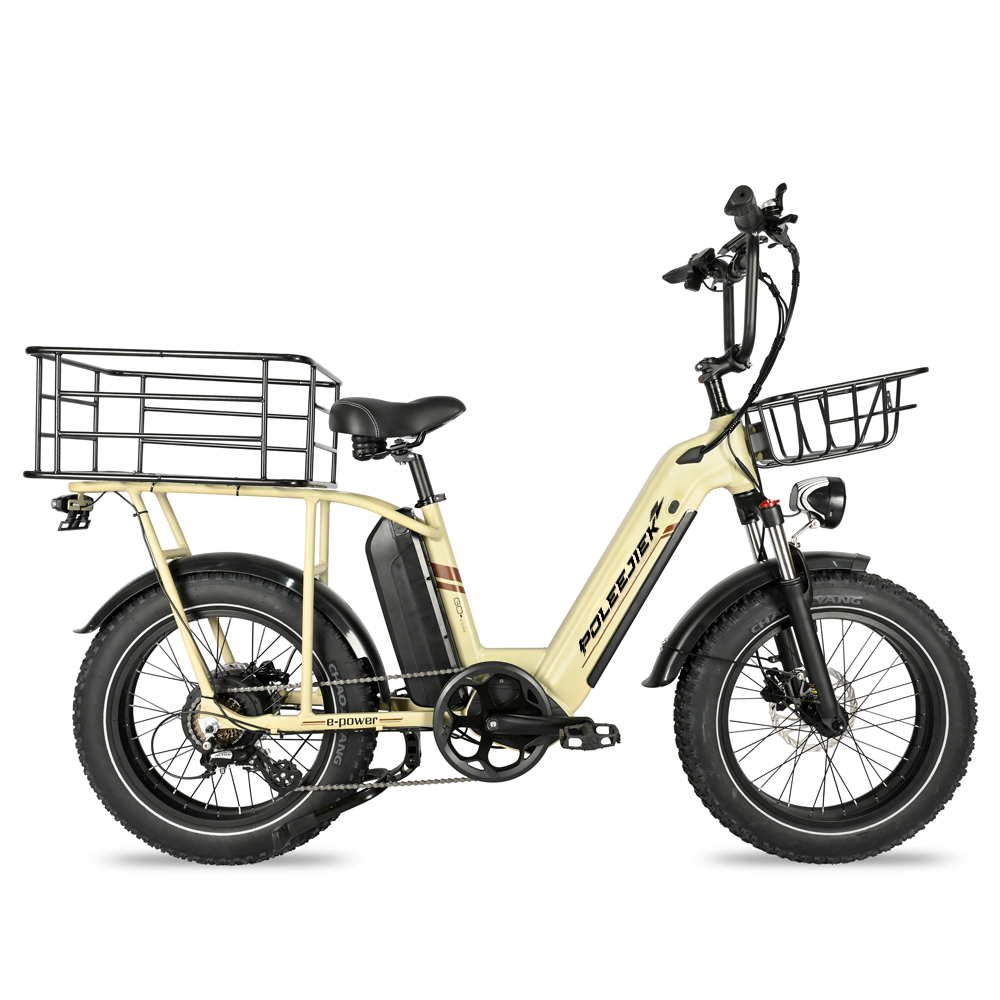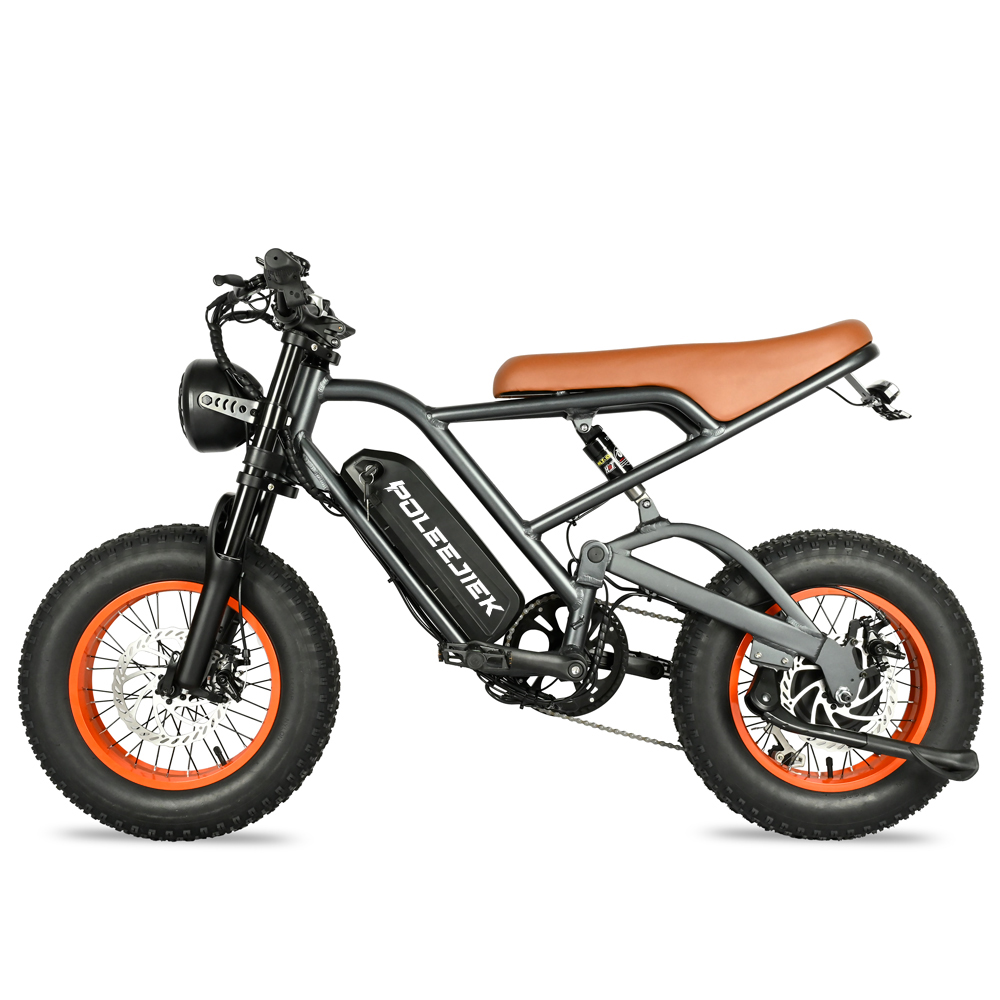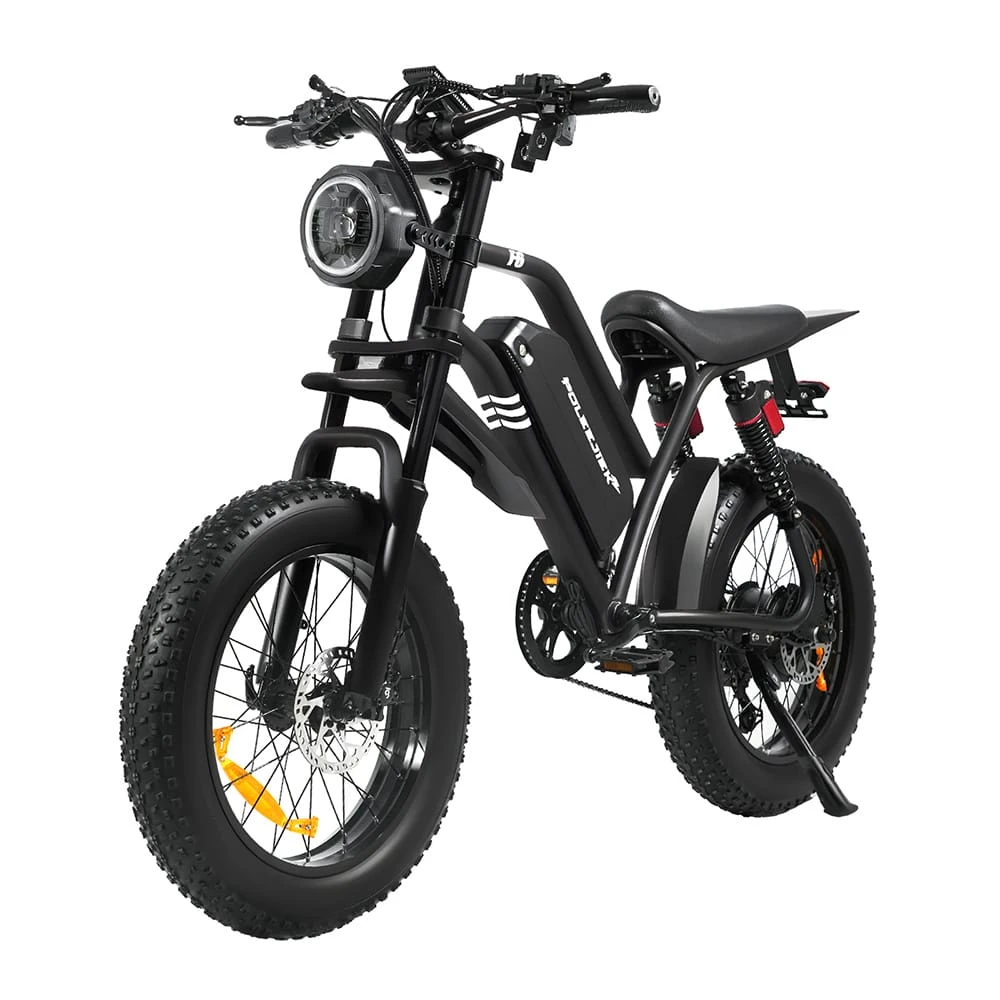The Cargo Ebike Revolution: A High-Profit New Blue Ocean for B2B Dealers
Are you watching your showroom floor become a sea of similarity? Are you and your competitors trapped in a race to the bottom, slashing prices on fat tire ebikes and cheap electric dirt bikes? If you're feeling the squeeze, you're not alone.
This is the classic symptom of a saturated market. When every distributor offers the same product category, the B2B dealer's profit margin is the first casualty. You're forced to fight over pennies, not build partnerships.
But what if there was a segment you could own? A high-demand, high-profit category that is not yet a commodity?
Welcome to the cargo ebike (or cargo bike electric). This is not just another e-bike; it's a utility vehicle, a business tool, and a car replacement. For the B2B dealer, it's a strategic move away from low-margin volume and into high-value solutions.
This comprehensive guide is for B2B distributors, product managers, and dealership owners. We will analyze why the cargo ebike is the single most important investment for your 2025 inventory, how to calculate its superior ebike profit margin, and how Poleejiek, as a leading B2B ebike supplier, de-risks this opportunity for you.
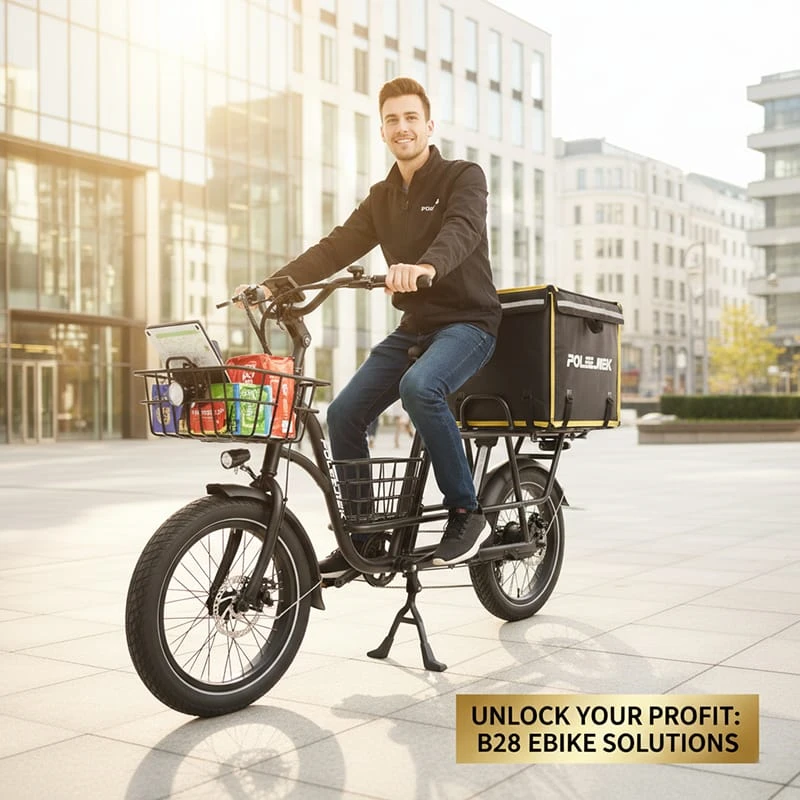
What is a Cargo Ebike? (And Why the B2C and B2B2C Markets Are Exploding)
First, let's clarify what we're not talking about. This isn't a standard bike with a basket. A true cargo ebike is a purpose-built vehicle designed specifically to haul significant weight, whether that's children, groceries, or commercial goods.
The category is broadly split into two main designs, each serving a distinct market.
Defining the Types (Targeting Key Search Intent)
1. The Long-Tail Cargo Ebike
This is the "minivan" of the e-bike world and the perfect "car-replacement" vehicle. It's characterized by an extended rear frame (the "long-tail") that can be configured in dozens of ways.
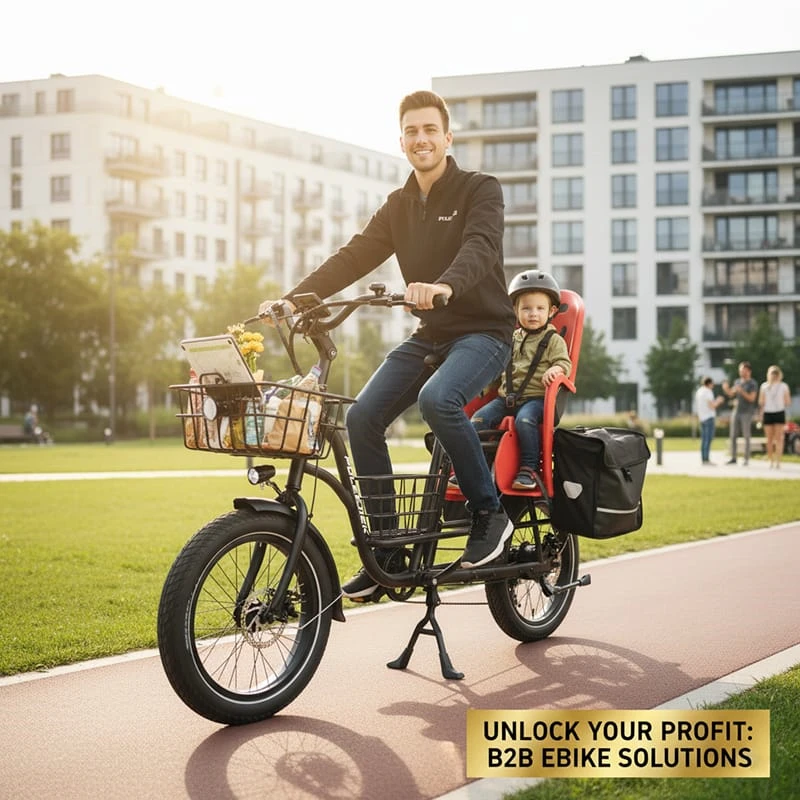
For B2C buyers, this is the ultimate electric bike for commuting upgrade. It functions as a 2 seater electric bike (with a rear pad) or, more commonly, an electric bike with kid seat configurations. Families can mount one or two child seats, "clubhouse" safety bars, and large panniers, all at the same time.
- B2B Opportunity: This is your entry point for the lucrative "young family" demographic. They are not looking for a toy; they are looking for a reliable, safe, and practical alternative to a second car for school runs and grocery trips.
2. The Front-Loader (or "Bakfiets") Cargo Ebike
Originating in Europe (the "Bakfiets" is Dutch for "box bike"), this design places a large cargo box low to the ground between the handlebars and the front wheel.

This design offers immense stability for heavy or bulky items and is the preferred choice for many commercial applications. The low center of gravity makes it easier to manage than a heavily loaded long-tail.
- B2B Opportunity: This is the ideal last-mile delivery ebike. It’s the perfect solution for local businesses—pizzerias, florists, couriers, and coffee shops—who need to move goods efficiently within a dense urban area.
Where is the Demand Coming From? (The B2B Opportunity)
The cargo ebike boom is not a fleeting trend. It's a structural shift in transportation driven by two powerful forces.
1. The B2C Market: The "Second Car Replacement"
Urban and suburban families are doing the math. The cost of owning, insuring, fueling, and parking a second car for short trips is astronomical.
- Eco-Consciousness: Consumers actively want to reduce their carbon footprint.
- Cost Savings: An e-bike costs pennies to "fuel." Insurance is negligible. Maintenance is minimal.
- Convenience: A cargo ebike bypasses traffic, parks anywhere, and combines exercise with transportation.
Dealers who stock cargo ebikes are not just selling a bike; they are selling a solution to rising gas prices, parking shortages, and traffic congestion.
2. The B2B2C Market: The "Last-Mile Delivery" Revolution
For local businesses, the "last mile" of delivery is the most expensive and complex part of their supply chain. Delivery vans are costly, get stuck in traffic, incur parking fines, and have high maintenance and insurance rates.
The last-mile delivery ebike shatters this model.
A local restaurant, pharmacy, or courier service can deploy a fleet of three cargo ebikes for the total cost of one delivery van. Their operating costs plummet, their delivery times become faster and more predictable, and they can advertise themselves as a "green" or "eco-friendly" business. This is not a niche—it's the future of urban logistics .
The B2B Profit Analysis: Why Cargo Ebikes Have Higher Margins
Let's address the B2B pain point directly: profit. The ebike profit margin on a commoditized fat tire bike is evaporating. The cargo ebike reverses this trend.
1. Escape the Commodity Trap (Selling a "Solution")
A customer buying a fat tire bike is often comparing specs: "This one has a 500W motor, but that one has 750W for $50 less." This is a race to the bottom.
A customer buying a cargo ebike is asking questions:
- "Can this safely carry my two children?"
- "What is the total weight capacity for my delivery route?"
- "How many pizza boxes can fit in this front loader?"
They are buying a capability, not just a specification. Cargo ebikes are specialty vehicles. Because they solve a specific, high-value problem (like replacing a $30,000 car), they are insulated from the price-shopping that plagues the recreational market.
2. Higher Average Selling Price (ASP) and Perceived Value
The customer expects a cargo ebike to be more expensive. They inherently understand that a reinforced frame, a high-torque motor, and heavy-duty components cost more.
A B2C customer may balk at a $2,000 fat tire bike but will see incredible value in a $3,000+ cargo ebike that saves them $500 a month in car payments and gas.
A B2B2C customer (a business) isn't even thinking about price; they are thinking about ROI. If a $4,000 Poleejiek cargo ebike replaces a $40,000 delivery van, the payback period is measured in months, not years.
This higher ASP, combined with a solution-based sale, means your absolute dollar profit per unit is significantly higher.
3. The Accessory & Service Goldmine (Your Profit Multiplier)
Your profit doesn't end with the initial sale. In fact, it's just the beginning. Cargo ebikes are platforms for high-margin accessories.
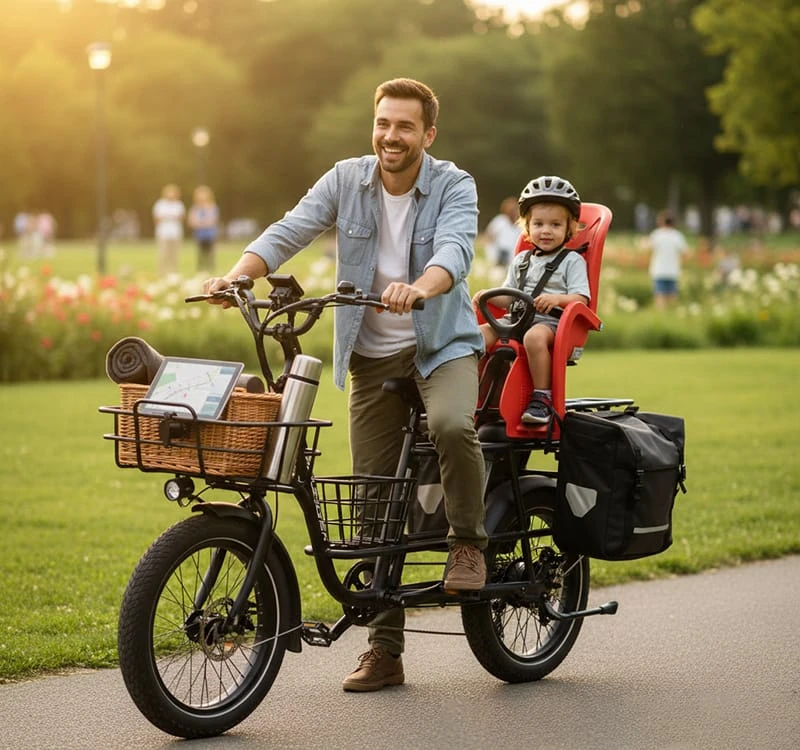
B2C Up-Sells (Family Market):
- Electric bike with kid seat (often two)
- "Clubhouse" or "Monkey Bar" safety railings
- Padded seat cushions for the rear deck
- Full-coverage rain and weather canopies
- Heavy-duty front racks and baskets
- Oversized panniers and cargo bags
B2B2C Up-Sells (Commercial Market):
- Lockable, branded, waterproof cargo boxes
- Insulated boxes for food delivery
- Custom-built racks for specific tools or goods
- Dual-battery systems for extended range
Furthermore, these bikes are workhorses. They will be ridden daily, under load, and will require more consistent service—new brake pads, chain replacements, and tune-ups. For a dealer, this creates a reliable, high-profit recurring revenue stream that recreational bikes simply don't offer.
B2B Risk Management: How Poleejiek Guarantees Your Cargo Ebike Quality
As a B2B buyer, your biggest fear is justified. "A cargo ebike needs to carry 400+ lbs. Will the electric bike frame crack? Will the standard 750 watt electric bike motor burn out on a hill? And what happens when a customer breaks a unique, proprietary rack? Can I even get the spare part?"
This is where your choice of B2B ebike supplier becomes critical. A cheap cargo ebike is a service nightmare waiting to happen. At Poleejiek, we engineer our cargo line to mitigate these risks from the ground up.
The Poleejiek Standard for Cargo-Grade Quality (Addressing Pain Point #2: Reliability)
A cargo bike is not a fat tire bike with a long rack. It's a different class of vehicle.
- Frame Integrity: Our frames aren't just welded; they are engineered. We use 6061-T6 aluminum with strategic gussets and reinforcements at all high-stress points (like the headtube and seat tube). Every Poleejiek cargo ebike frame is certified to meet or exceed the rigorous ISO 4210 cargo-specific fatigue and stress tests.
- Motor and Drivetrain: We don't use standard motors. A 750 watt electric bike motor for a lightweight trail bike is tuned for speed. Our 750W and 1000W motors are high-torque hub or mid-drive units. They are wound specifically to deliver maximum power from a dead stop, under load, to get a 400lb-loaded bike up a steep hill without overheating. This is paired with reinforced chains and heavy-duty cassettes.
- Braking Is Non-Negotiable: Safety is quality. Standard two-piston mechanical brakes are dangerously insufficient for a cargo bike. All our cargo models come standard with 4-piston hydraulic disc brakes and oversized 180mm (or 203mm) rotors. This provides the stopping power and heat dissipation needed to control a heavy load safely.
- UL-Certified Electrical Systems: We prioritize safety and regulatory compliance. Our battery, motor, and controller systems are UL 2849 certified, ensuring they meet the highest electrical safety standards—a crucial selling point for B2C families and a requirement for many B2B fleet insurers.
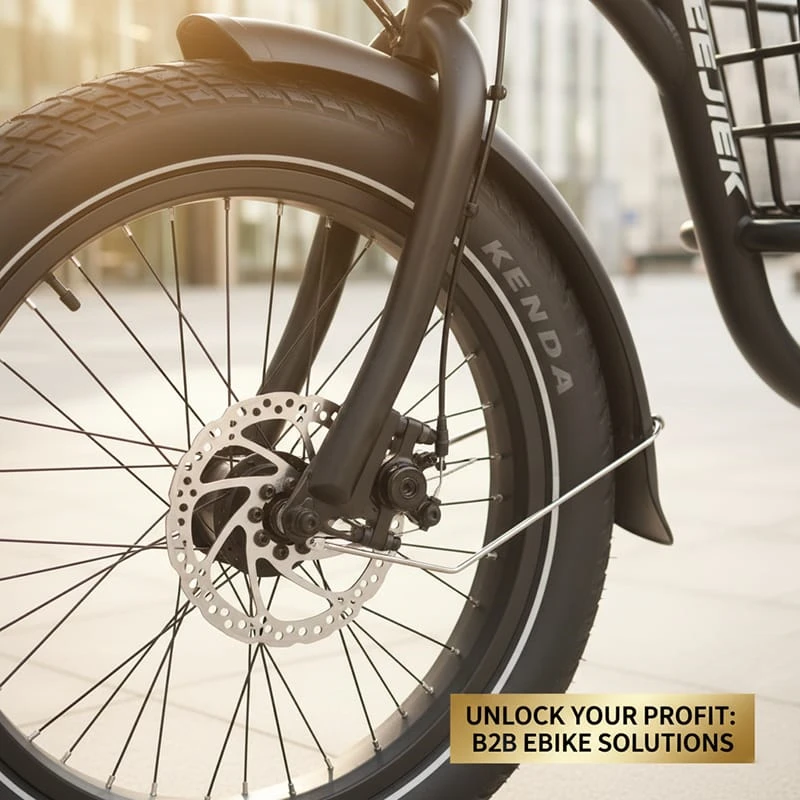
The Poleejiek Partner Pledge: Your After-Sales Guarantee (Addressing Pain Point #1: Parts)
The "after-sales nightmare" of being unable to source a proprietary part is a dealer's worst-case scenario. It ruins your reputation and costs you money.
We eliminate that risk.
As your partner, Poleejiek provides a 5-year parts supply guarantee for all proprietary components on our cargo ebike models.
This includes everything from the heavy-duty dual-leg kickstands and custom-molded running boards to the specific bolts and mounts for our racks. You will never have a bike sitting in your shop for months waiting for a part from overseas. We stock these parts, ready for our B2B partners, so you can service your customers with confidence.
Conclusion: Stop Selling Commodities. Start Selling Solutions.
The price war over recreational e-bikes will only get worse. It's a race to the bottom that erodes your brand value and your ebike profit margin.
The cargo ebike represents a strategic pivot. It's a "blue ocean" market where you can establish yourself as an expert and a solutions provider. It allows you to build a new, high-value customer base—both families looking to replace their car and local businesses desperate to solve the last-mile delivery puzzle.
This is your chance to stop selling "what's cheap" and start selling "what's valuable."
Poleejiek is more than just a B2B ebike supplier; we are your strategic partner for entering this lucrative market. We provide the cargo-grade, quality-assured product, the rock-solid parts-supply guarantee, and the B2B support you need to win.
Your Next Step
Ready to add a high-profit, high-demand "workhorse" to your showroom?
Contact the Poleejiek B2B team today to request our Cargo Ebike Business Case Analysis and receive your exclusive B2B distributor pricing. Let's help you capture your local last-mile delivery market.



